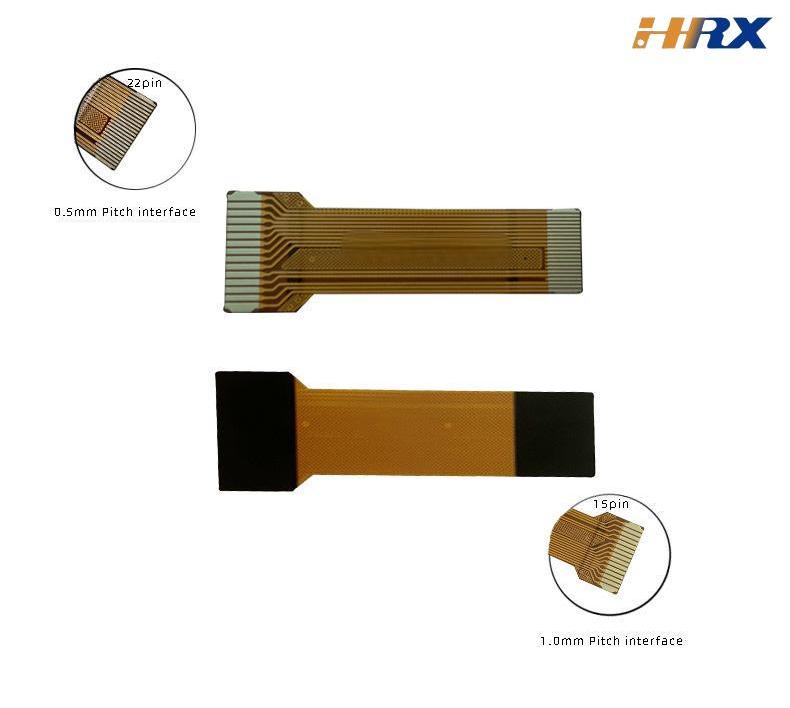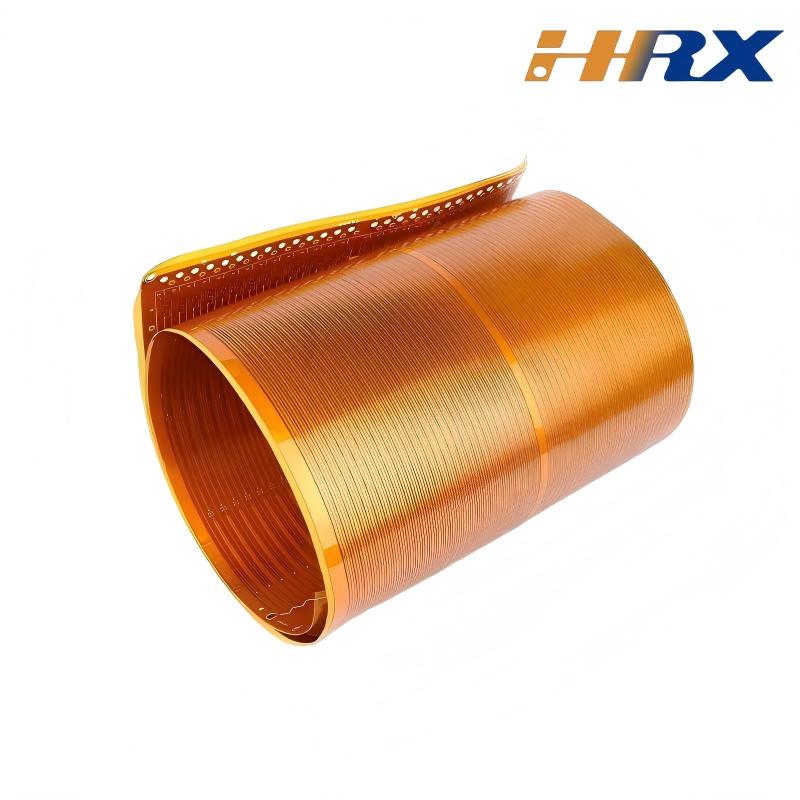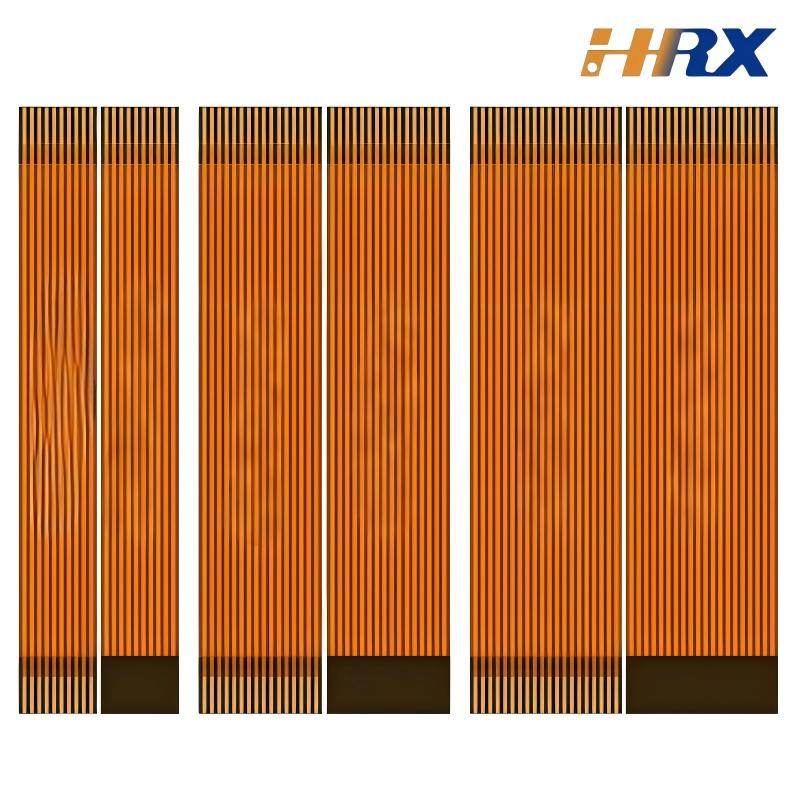Search
How to Select Appropriate Pitch and Pin Specifications Based on Specific Application Requirements
- Jun 28,2025
-
Share
In the dynamic realm of Flexible Printed Circuit Boards (FPCBs), a cornerstone of modern electronics powered by Flexible Interconnect Technology, the meticulous selection of pitch and pin specifications emerges as a linchpin in determining the performance, reliability, and functionality of end - products. As Shenzhen Huaruixin Electronics Co., Ltd., a preeminent global ODM/OEM manufacturer specializing in FPC, PCB, and Rigid - Flex Printed Boards, our profound expertise in Polyimide Substrate processing and High - Density Interconnect (HDI) technology positions us as authorities in this intricate selection process. Here, we delve into the pivotal considerations for choosing optimal pitch and pin specifications tailored to diverse application needs, incorporating essential FPC industry jargon and SEO - optimized keywords to enhance visibility on Google's latest search algorithms.

Consider the Application Environment
Consumer Electronics
In the fast - paced consumer electronics sector, where Miniaturization and Ultra - Thin Design are paramount, FPCBs play a crucial role. For devices such as smartphones, tablets, and wearables, a Fine - Pitch technology, typically ranging from 0.1mm to 0.5mm, is highly sought after. This Ultra - Fine Pitch enables the implementation of High - Density Component Integration, allowing for the incorporation of numerous micro - components like MEMS sensors, System - in - Package (SiP) modules, and high - speed connectors within a compact form factor. For instance, in state - of - the - art smartphones, pitches as low as 0.3mm or less are utilized to achieve seamless integration of advanced features while maintaining a sleek and lightweight design.
Regarding pins, Surface - Mount Technology (SMT) pins are the industry standard in consumer electronics. These Miniaturized SMT pins, often featuring a Gold - Plated Finish, offer exceptional electrical conductivity and superior corrosion resistance, ensuring Long - Term Reliability. Their design is optimized for High - Volume Assembly, streamlining the manufacturing process and reducing production costs. Additionally, the use of Ball - Grid Array (BGA) pins in some high - end devices further enhances the packing density and signal integrity, making them ideal for complex circuitry in compact devices.
Automotive
Automotive applications present unique challenges due to the harsh operating environment characterized by Extreme Temperature Fluctuations, Vibration, and Electromagnetic Interference (EMI). In automotive FPCBs, a Medium - Pitch range, usually between 0.5mm and 1.0mm, strikes a balance between component density and reliability. This pitch provides adequate Clearance between conductors, enabling the FPCB to withstand Mechanical Stress and thermal variations without sacrificing the overall footprint of the circuit board.
For pins, Robust Through - Hole Pins or pins with Enhanced Locking Mechanisms are commonly employed to ensure a Secure Electrical Connection under vibration. Tin - Plated or Tin - Nickel Plated pins are favored for their excellent Solderability and Corrosion Resistance in the automotive environment. Moreover, these pins must comply with stringent Automotive Industry Standards, such as AEC - Q100 for electrical insulation and safety, ensuring reliable performance throughout the vehicle's lifespan. The integration of Flexible Flat Cable (FFC) connectors with these pins also facilitates easy installation and maintenance in automotive systems.
Medical Devices
Medical devices demand the highest levels of Precision, Reliability, and Biocompatibility. In Implantable Medical Devices, Ultra - Fine Pitch technology, sometimes even less than 0.1mm, is essential for achieving Miniaturization while integrating all necessary components. However, for Non - Implantable Medical Devices like diagnostic equipment, a pitch in the range of 0.3mm - 0.8mm is often more suitable, depending on the circuit complexity.
When it comes to pins, Biocompatible Materials are of utmost importance for implantable devices. Pins made from Titanium or Medical - Grade Polymers ensure Compatibility with the human body. For all medical device applications, pins are designed to minimize Signal Interference and ensure Accurate Data Transmission, which is critical for patient diagnosis and treatment. The use of Hermetic Sealing techniques with these pins also protects the FPCB from biological fluids and contaminants, enhancing the device's longevity and safety.
Evaluate Performance Requirements
Signal Transmission
In applications requiring High - Speed Signal Transmission, such as 5G communication devices and high - performance computing systems, both pitch and pin selection must prioritize Signal Integrity. Smaller pitches can increase the risk of Crosstalk and Electromagnetic Coupling between adjacent conductors. Therefore, a Larger Pitch, typically 0.8mm - 1.25mm, is often recommended, complemented by Advanced Shielding Techniques and Impedance Matching. Pins with Low - Profile and Low - Inductance designs are preferred to minimize Signal Attenuation. Gold - Plated or Palladium - Alloyed pins further enhance signal quality by reducing contact resistance and improving conductivity.
Power Handling
For applications involving High - Power Transmission, such as Electric Vehicle (EV) battery management systems and industrial power supplies, a Large Pitch of 1.25mm or more is advisable to prevent Electrical Arcing and Short Circuits. This pitch provides sufficient Insulation Clearance between power - carrying conductors. Pins with a Large Cross - Sectional Area and High - Current - Carrying Capacity, such as Copper - Based Pins with Thick Tin or Silver Plating, are essential for handling high currents. Thermal Management features, such as Heat - Sinkable Pin Designs, are also incorporated to dissipate heat effectively and prevent overheating, ensuring the safe and reliable operation of the FPCB.
Take into Account Manufacturing Feasibility and Cost
Manufacturing Feasibility
Smaller pitches pose significant challenges in the manufacturing process, requiring advanced equipment and techniques. High - Precision Laser Direct Imaging (LDI), Nano - Scale Etching, and Ultra - Fine Pitch Soldering are necessary for producing FPCBs with pitches of 0.3mm or less. For high - volume production, choosing a more Readily Manufacturable pitch, such as 0.5mm, can significantly reduce production time and improve Yield Rates. Similarly, the complexity of pin design affects manufacturing efficiency. Simple - Geometry Pins are easier and faster to produce, while Custom - Shaped Pins with specialized features may require additional manufacturing steps and longer lead times.
Cost
Pitch and pin specifications have a substantial impact on FPCB costs. Smaller pitches and complex pin designs lead to higher production costs due to the need for advanced manufacturing processes, Expensive Equipment, and Skilled Labor. Specialized pins, such as those with Custom Plating or High - Precision Tolerances, also contribute to increased costs. Therefore, it is crucial to strike a balance between performance requirements and cost considerations. Value - Engineering strategies, such as optimizing pitch and pin designs without sacrificing essential functionality, can help achieve cost - effective solutions. For example, using Standard Pitch and off - the - shelf pins where possible can reduce costs while still meeting application needs.
At Shenzhen Huaruixin Electronics Co., Ltd., our cutting - edge manufacturing facilities equipped with Advanced Automated Production Lines and state - of - the - art Quality Control Systems enable us to handle a wide range of pitch and pin specifications. Our team of experienced FPC Engineers and Technicians is dedicated to providing Customized Solutions tailored to your specific application requirements, performance goals, and budget constraints. Whether you need a High - Density FPCB with Ultra - Fine Pitch for a cutting - edge consumer device or a Rugged FPCB with High - Reliability Pins for an industrial application, we are your trusted partner in the FPC industry.
For more information on our comprehensive range of FPC, PCB, and Rigid - Flex Printed Board solutions, or to discuss your project requirements, please contact us at sales@hrxfpc.com or visit our website www.hrxfpc.com. Stay ahead in the competitive electronics market with our innovative and reliable FPCB solutions.

Let’s talk! We’ll provide the perfect solution for you!
-
 Huaruixin Electronics mainly produces printed circuit boards as the core business, to provide customers with one-stop solutions for FPC/PCB production, components sourcing and Assembly.
Huaruixin Electronics mainly produces printed circuit boards as the core business, to provide customers with one-stop solutions for FPC/PCB production, components sourcing and Assembly. - WHAT WE DO — PCB Design Solutions — Flex PCB Production — Components Sourcing — FPC&PCB Assembly
- PRODUCTS — Single Sided Flexible Circuits — Double Sided Flexible Circuits — Multilayer Flexible Cirucits — Rigid-Flex Circuits — FPC Assembly — PCB Assembly
- CAPABILITY — FPC Capability — Rigid-Flex Capability — PCB Capability — Assembly Capability
- Copyright © 2024 Shenzhen Huaruixin Electronics Co., Ltd. All Rights Reserved.
- Design By BONTOP


